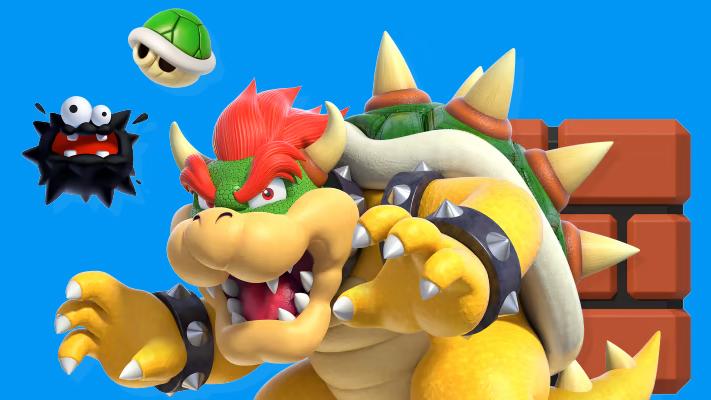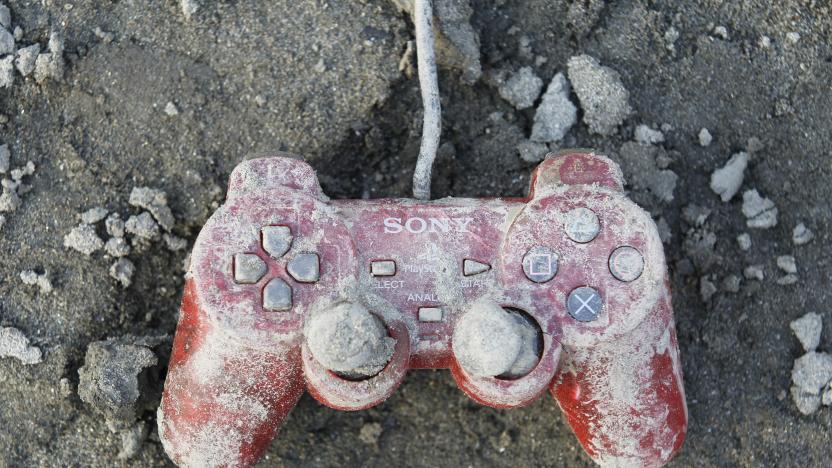game preservation
Latest

Nintendo blitzes GitHub with over 8,000 emulator-related DMCA takedowns
Nintendo sent a Digital Millennium Copyright Act (DMCA) notice for over 8,000 GitHub repositories hosting code from the Yuzu Switch emulator, which the Zelda maker previously described as enabling “piracy at a colossal scale.”

Makers of Switch emulator Yuzu quickly settle with Nintendo for $2.4 million
Tropic Haze, the popular Yuzu Nintendo Switch emulator developer, appears to have agreed to settle Nintendo’s lawsuit against it. Less than a week after Nintendo filed the lawsuit, a joint filing for a final judgment and permanent injunction says Tropic Haze has agreed to pay the Mario maker $2.4 million, along with other concessions.

Game preservationists recreate F-Zero games beamed over satellite in the mid-'90s
Some imaginative and resourceful game preservationists have reverse-engineered a long-lost F-Zero game from the mid-'90s. Faithful recreations of two BS F-Zero games, broadcast exclusively for Nintendo’s long-defunct Satellaview satellite gaming extension for the Super Famicom, are now available.
![Microsoft Corp. Xbox 360 video game console and controller are pictured in Los Angeles November 18, 2005. [Microsoft hopes to gain an advantage over rivals Sony Corp. and Nintendo Co. Ltd.] by being first to launch a next-generation video game console when its Xbox 360 debuts November 22, 2005 in the United States.](https://s.yimg.com/uu/api/res/1.2/zDU8JXgHiLB934IwCw.shg--~B/Zmk9ZmlsbDtoPTQ2ODtweW9mZj0wO3c9ODMyO2FwcGlkPXl0YWNoeW9u/https://s.yimg.com/os/creatr-uploaded-images/2023-08/f1673690-3d08-11ee-bd9f-611c12ab3b0c.cf.jpg)
The Xbox 360 store will close in July 2024
You'll no longer be able to buy games, DLC or anything else on the Xbox 360 console or Marketplace after July 29, 2024. You'll still be able to buy backwards compatible games on the Xbox One and Series X/S.

Sony is building a game preservation team
The revamped PlayStation Plus service will include hundreds of games from older generations.

The fight to save the UK's National Videogame Museum
The National Videogame Museum (NVM) is under threat. The building is one of the only permanent museums dedicated to video game culture in the UK, alongside the Centre for Computing History in Cambridge. But like so many other brick-and-mortar businesses, it's been forced to close its doors during the coronavirus pandemic.

Buy every North American SNES game for $25,000
If you want to play every single North American SNES release ever – and display them in their original boxes when not playing – now is your chance. A collector called "Byuu" is selling a complete set of 721 Super Nintendo games on eBay, for just $24,999. That comes out to $34.67 per game overall, but it's worth noting that the rarer games are worth much, much more than that (Demon's Crest, for example, is up for $150 complete), and boxed copies of any game command higher prices than loose cartridges.In addition to the games and boxes, the set includes 605 manuals, plus duplicate games, boxes, and manuals for some. Such careful, expensive, obsessive work was done in the name of preservation: Byuu is the developer of the Bsnes emulator, and the cartridges were dumped from the collection to obtain clean copies of all the games, in order to make the emulator work as close to perfectly as possible. "I will be using 100% of the profits from this sale to do the same for the European and Japanese sets next," Byuu said on Reddit.Byuu is getting offers ranging from one penny to $20,000, but no one has bid the full price yet, Byuu told Polygon. "If I cannot get $20,000 I will not fully recoup my own investment, and I can't afford to lose money," Byuu said. "I will most likely wait indefinitely. The SNES game prices have continued to rise steadily over the past several years. It will eventually sell, I am confident in that."

GDC08: Preserving Games, day 2
Today's session of the Preserving Games panel dealt mostly with the issue of preserving not-games. More specifically, game-related material in the possession of developers -- design documents, contracts, notes, emails, and any minutiae that they may not even realize is worth keeping. This also went along with yesterday's talk of gathering oral histories. Warren Spector led the discussion for the most part, bringing up his work for a game design class at the University of Texas, during which time he brought in developers to tell their stories. His contention, and one that was shared by most of the group, is that the playable games themselves are trivial to preserve compared to the rarer materials, which also provide a historical record of the development process. Developers from Midway Games, Maxis, Obsidian, and Vicarious Visions mentioned their collections and their efforts to keep both a stock of games and of their own design materials. Former Maxis programmer Don Hopkins talked about the recent open-source release of Sim City and challenged other developers to do the same as a way of preserving the code. The group decided that a white paper should be produced, to describe to developers and publishers the reasoning behind collecting and preserving the game-design resources.The IGDA Game Preservation SIG isn't just for Warren Spector! It's for anyone with an interest in maintaining the history of video games. Do you want to help with the white paper, or the wiki? Check out the wiki or contact the SIG via email. And have a look at the University of Texas Center for American History's Video Game Archive to see game preservation in action.

GDC08: Preserving Games panel
The first day of the Preserving Games: Saving the Past and Present Now panel was focused on identifying problems in game preservation. First, panel leader Henry Lowood outlined some of the existing work from the IGDA Game Preservation SIG, including the Digital Game Canon, whose first year included Joystiq's own Chris Grant on the panel, and a new project on the SIG's wiki devoted to memorials of game developers who have passed. About this, Lowood said "The game industry needs to recognize the past more."Lowood suggested some future possibilities for gathering not only game code, but metadata as well, for permanent preservation, driving home the idea that we should at least intend for things to be available in 100 years. He suggested finding a way to capture data from existing game-data aggregators like Mobygames to associate with a library record. Issues that were discussed in this panel, to be continued at tomorrow's part 2, included bringing information professionals and knowledgeable gamers, collectors, and developers together. Lowood likened gamers to destroyers -- fast, small ships -- and the colleges getting involved with the Library of Congress-funded Virtual Worlds Project (the overarching initiative to preserve games) to battleships who happen to know more about "industrial-strength preservation."The attendees, a group consisting of developers, writers, academics, and collectors, discussed the issue of what constitutes a library, and what constitutes a "preserved" game. Is emulation preservation? Is the experience captured? Is it in a library's purview to attempt to capture an experience? Issues like these are what make the game preservation project difficult, and warrant further discussion.



